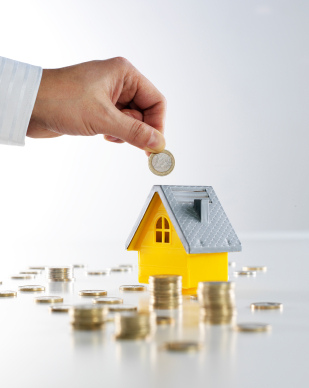
Many people are rushing into the housing market due to FOMO (Fear of missing out) and there could be some consequences when interest rates go up. There is a good news bad news scenario to buying right now and everyone in the housing market for their first time needs to know what to expect. Before you rush in, here is the good and the bad to buying right now.
The good news about low interest rates staying on the horizon for the long term is that we will have more of our money going towards principle versus interest payments than if interest rates were higher.
Let’s use close to the average Canadian housing price as an example – $400,000. Let’s make a 10% down payment on a $400,000 house. That would be $40,000 and would leave us with a mortgage of $360,000 plus $7,200 in housing insurance. You need to pay Canada Mortgage and Housing Corporation (CMHC) insurance when you put less than 20% down on your home. There are different rates of insurance depending on how much you put down. $7,200 is the fee when you put 10% down. You can find CMHC calculators all over the Internet or on your bank’s site.
With a $367,200 mortgage, a conservative 4% interest rate and a mortgage amortized over 25 years, your payments would be roughly $1,940 monthly. Your property taxes, heat, insurance, lawn gnomes, wheelbarrow are all on top of that so make sure you crunch the numbers. Adding them all up can really increase your payment, especially if you’re buying a condo with maintenance fees.
The chart below shows what your payments could be on the same mortgage as interest rates go up. I’ve never seen this in the financial expert universe and I wanted to show it. Make sure everyone hopes for the best real-estate-wise but plans for the worst!
When Interest Rates Increase
Mortgage Interest Rate Payment + Payment Interest Paid
$367,200 4% $1,940 $212,125
$367,200 5% $2,140 (+$300) $273,277
$367,200 6% $2,350 (+$410) $337,274
As you can see in the chart, a modest 2% hike in interest rates results in a $400 increase in payments and over $120,000 more in interest. Ouch! If you only barley got approved in the mortgage at 4% you wouldn’t be able to afford to make the payments at 6% when they are $410 a month higher. Someone who is just starting out and is anxious to get on the real estate ladder might have a problem living once they have to make another $410 payment each month. No one wants to be house poor when they are young wipper snapper and have to be social and active too. Make sure you can afford the home at an average of 5-6% so when markets go up you can still afford them.
If it looks like more than 1/3 of you AFTER tax income is going to be going to a place to live. Don’t buy it. Sit this one out and work on your career or marrying rich. Then you can buy a place when you can truly afford it. The banks will lend you almost 50% of your take home income but that will leave you sitting in your condo watching Netflix with stolen WIFI. It won’t leave you any money to live so use 1/3 of take home as a rule of thumb. You’ll thank me for it.
If you can afford the 5-6% interest rate, when the mortgage rate market goes back to normal, here is an easy way to save $32k on this mortgage before rates go up. Make your payments accelerated weekly and not monthly. You’ll only be paying $966 more a year by making payments of $483 weekly as opposed to $1,940 monthly, and it’ll save you all that money over the 25-year amortization. You’ll also be use to making larger payments and will have been use to paying out more. Don’t have FOMO over buying your fist place. Do the hard math and be happy in your decision. Rad, right?









